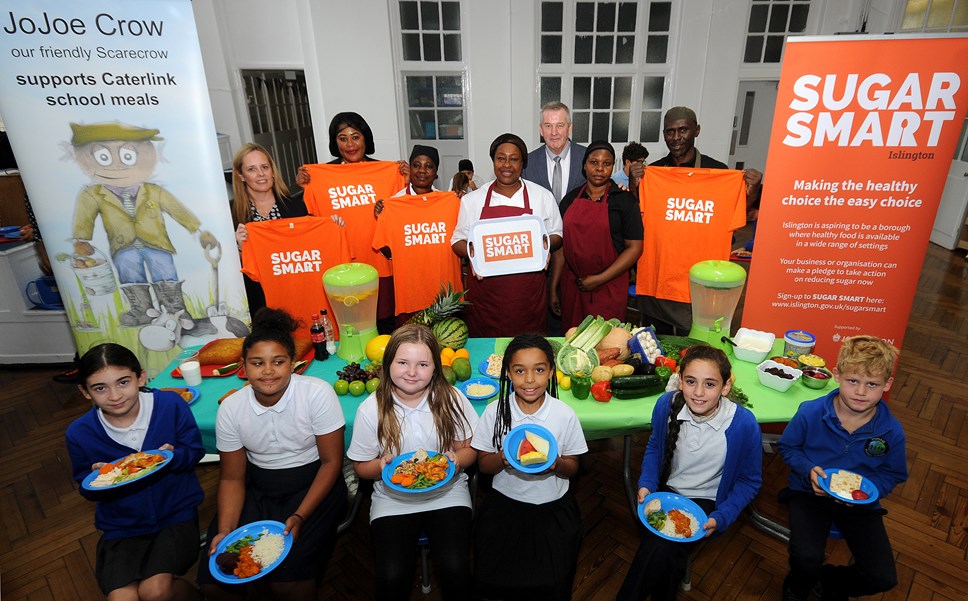News
SUGAR SMART NEWS AROUND THE UK
Islington slashes sugar in school meals and shares top tips
London Borough of Islington worked with their contract caterer, Caterlink, to reduce the sugar content of school meals, achieving a dramatic reduction of 1,744 kg sugar used in school meals in primary schools and work has continued to bring down the sugar content even further.
19/11/2018

Islington Council's health and wellbeing team measured the amount of sugar served as part of school meals across their borough-wide contract with Caterlink. It was found that some desserts contained more than the maximum daily recommended amount of sugar for children. They ran an audit of recipes and pudding provision to inform a sugar reduction pilot in partnership with their caterer.
The outcome of this pilot ultimately informed Caterlink's pudding provision across contracts nationally, which we have previously reported on here. Below, you will also find Islington Council's top tips and recommendations for other local authorities who want to slash the sugar content of their school meals.
In Autumn 2016, the health and wellbeing team conducted school canteen visits, noting portion sizes, provision and placement of puddings and fruit. Desserts were taken away to be weighed and to have their free sugar content analysed.
The team also looked at practices in schools outside of their catering contract. Some schools had taken most puddings off their menu successfully. One school served cake once a week, rice pudding once a week and a fresh fruit buffet and yoghurt for the rest of the week. Another school served cake once per week and fresh fruit desserts every day of the week.
The findings and recommendations were presented to Caterlink who took them on board and started implementing sugar reduction measures. This resulted in a massive reduction of 1,744kg of sugar served in Islington primary schools during the 2017 Autumn term.
Since this project had been completed, Camden and Islington Council have gone through a school meals tender process and have included the following in the new contract:
- All desserts should be fruit and/or dairy-based
- Desserts (excluding fruit and yoghurt) can only be served 2 – 3 times per week
- Maximum amount of sugar content in a primary school lunch is 6.5g and for secondary school is 9g
- Reduction of sugar in yoghurt from a maximum of 4g per portion to no free sugar in yoghurt by April 2019. Plain yoghurt (no sugar) may be served with fresh, tinned (in juice) or unsweetened stewed fruit (compote)
These recommendations are now built into the new contract for the early years, primary and secondary meals, which has been secured by Caterlink. With about 11,000 pupils eating a Council contract school meal in Islington, this is having a huge public health impact.
Islington Council and Caterlink continue to work closely to develop more innovative ways to reduce the sugar in school meals and get pupils to eat more healthily.
Islington Council has kindly provided recommendations and top tips to be shared with school meals teams in other local authorities. Top tips include:
- Ensure item placement and staff promotion nudges choosing fruit over puddings
- Encourage schools to opt for 2-3 ‘pudding-free’ days
- Reduce portion sizes of desserts in line with the School Food Plan recommendations
- Monitor dessert/fruit ratio uptakes from each school to monitor and track progress
Download a PDF of their recommendations here.
Does your school have a great example to share on reducing sugar in the school environment, whether in school meals or elsewhere in the school environment, such as special occasions or fundraisers? Please get in touch and share you story with us.
SUGAR SMART is a campaign run by Sustain. SUGAR SMART is one of the featured campaigns in the UK's Sustainable Food Cities Network.



